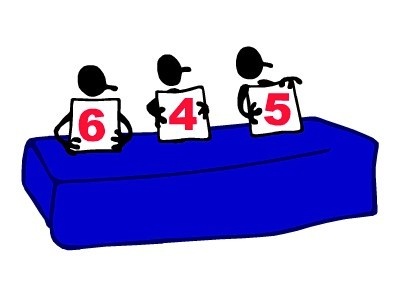Hiring Musicians for Gigs
By T. Perry Bowers
A lot of bands fall apart if one member leaves or is not available for a gig. They give up for a number of reasons. First, they are lazy. They don’t want to train a new guy. Fair enough. For a local small venue gig, it’s probably not worth teaching someone new all of your songs. But what if you have a cool opportunity like playing a festival or warming up for a famous national act? Those kinds of gigs don’t come around very often and when they do, it’s important to have a plan to replace a member of the band if you need to.

You’re probably not going to replace the lead singer. The lead singer is the most identifiable part of your sound and probably why you were offered the gig in the first place. The main songwriters are the second reason you’re being offered the gig. Without these key guys, it’s not the same band. But, what about the rhythm guitar player, bass player or drummer? Can the show go on without them?
In some bands, the bass player is absolutely key – Primus or the Red Hot Chili Peppers for example. In others the band is all about the drummer – think Rush or Tool. But, for most bands, replacing these members is not going to stop anyone from hiring you.
In my band, we’ve been playing musical chairs with bass players ever since we started. We’ve never found anyone that suited the role perfectly. Now, we have a great guy who is down for gigs, but can only come to practice once per month. This works for now, but someday, we may have to replace him for a particular gig or circumstance. This is how we do it.
First we give our new band member a list of songs they need to learn. In our case, they are all original except one. I try to include some notes on the song, like chords and arrangement. If I were giving a drummer notes, I would give him time signatures, tempo and arrangement. For bass players and guitarists, because I don’t know a lot about theory and chords, I just give the basics. If the chord is some kind of G, I put G. It might be some kind of augmented thing, but I have no idea. If you are able to specifically label the chords and notes, awesome. For arrangement, it usually looks something like ABABCAB. It’s a very simple way of giving the hired gun a visual for his task. But, because the notes are so rudimentary, we always provide recordings to go along with the visual notes and cues.
We use Soundcloud. My lead guitarist and I both have nice portable recording devices. We record a lot of our practices. We use these recordings to help each other learn new songs. We upload our files to soundcloud.com and create playlists. We create specific playlists for specific gigs. That way, the songs flow from one to the other the same way in the playlist, in rehearsal and eventually at the gig. When one song ends, the next song’s first riff is already imprinted in your mind. Our last gig was two hour long sets. Our bass player had to learn two hours worth of material to pull this off. It took a few months to get it all down, but these tools helped make that much easier.
Of course, you have to practice. We practice with the full band once per week. The two writing partners get together a second time if we have new material. As we are breaking in a new person right now, we just work on the set. There are layers to breaking in a new player. The first layer is familiarity. The new guy needs to have the songs in his bones. That’s why listening in between practices is so important. So is running the songs at practice without getting too nit picky at first. Let the new guy make some mistakes. If you run the song five times in the same practice and he still hasn’t made any progress, then maybe there is a problem. If he has a decent framework, like the outline on paper, and you run the songs a few times, he is going to at least be able to fake it.
We call it faking it because you can’t really understand a band’s music with a handful of practices over the course of a few weeks. If the bass player is hitting the root notes or the drummer is keeping the tempo and nailing the changes, you are probably happy. Of course, there is always more depth to the songs. Our music has a lot of nuance to it and we would love to have a bass player that would totally get our idiosyncrasies, but this is all about the next gig. Simplify and lower your expectations a bit. Don’t put up with any blatant mistakes, but you can’t ask a new guy to nail every nuance in every section.
My advice is directed at bands who are playing small venues, mostly for fun. You get a couple hundred bucks at the end of the night, but these gigs aren’t putting anyone’s kids through college. If you are in a band that is making real money, all of this changes. In that case, you have to pay players to rehearse with you. And if you’re paying them to rehearse with you, they better have their shit together. They should come into the first rehearsal knowing your songs and feeling the nuances. Depending on how much you’re paying them, they might be expected to make you sound better than you actually are. You don’t hire Jim Anton or Michael Bland because you want them to hang in the background and prop you up. You hire them because you want them to shine and bring your music to the next level. So just like anything, it comes down to money.
If your band is about having fun and rocking some gigs here and there, when you hire a fill in player, set it up for them so it’s easy to learn your material. Simplify your needs as a band and keep your expectations realistic. If you are shelling out some dough for the fill in to rehearse and gig with you, you should demand professionalism. They need to bring their A game. If you’re lucky, even without the money, you’ll find someone who is committed, talented and reliable. If that happens, count your lucky stars because it is truly rare.
Supporting the Twin Cities music scene.
Information to help you take the next step in your musical journey.
Our blog is dedicated to you and your music. We are going be using our website to bring you helpful information, tools and tips gleaned from our time in the music business.
Rock on! -Perry

